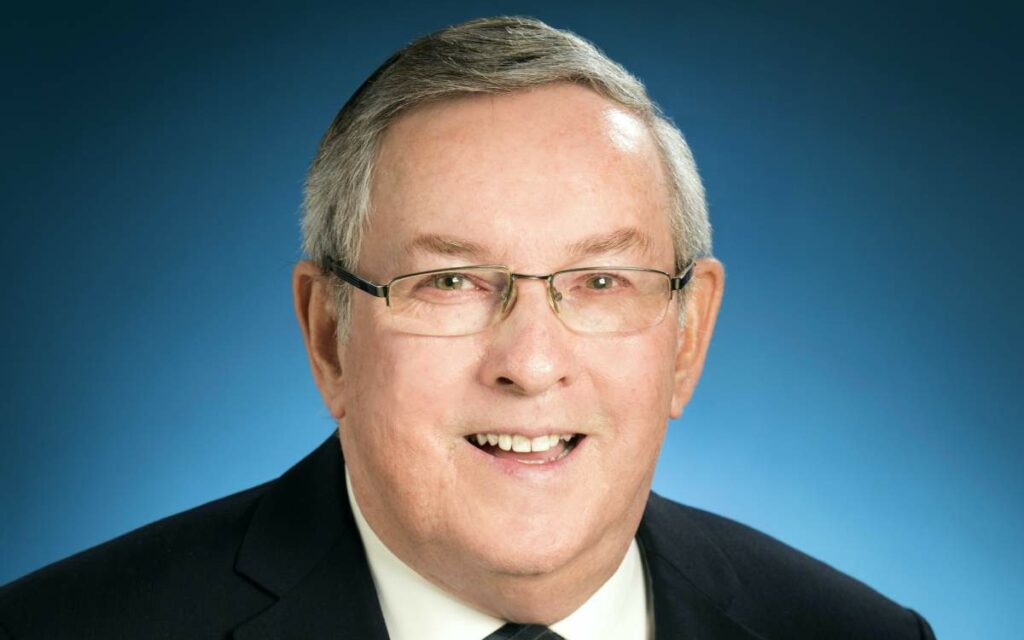
The 2023 budget includes adding approximately $36 million to regional reserves. With families struggling to make mortgage payments and put food on the table, it appears that Regional Council would rather have money in its government bank accounts rather than in the bank accounts of residents and local businesses. Pictured is Niagara Regional Council Chair Jim Bradley. Photo credit: Niagara Region
Last week, Niagara Regional Council passed the highest ever property tax bill since the municipality was formed in 1970. Despite the financial hardships facing many residents and local businesses, the Region passed a double-digit 2023 budget increase that will impact taxpayers for years to come.
At 7.58 per cent, the 2023 Niagara Region budget hike doubles, even triples the increases of York Region (3.9 per cent), Halton Region (3.0 per cent) and Peel Region (2.8 per cent).
Overall, this year Niagara taxpayers will be faced with additional regional costs that include:
- 7.58 per cent increase in the operating and capital budget;
- $55 million increase to operate the amalgamated Niagara Transit ($10 million increase compared to 2022);
- 5.5 per cent increase in garbage and recycling costs; and a
- 8.59 per cent increase on the water bill.
The 2023 budget will also increase by another $7.5 million with new taxes paid by homeowners who purchased new homes in 2022.
Speaking to the double-digit property tax increases, Regional Chair Jim Bradley released a statement, saying “Outside of EMS, Regional Council did not approve any new or expanded programs that are not being funded by other sources.”
When taking a detailed look at the 2023 budget, in addition to EMS, Regional Council approved several new and expanded services in multiple areas of the 2023 budget. For example, in 2022 the regional government employed 2,566 full-time employees. For the 2023 budget, there will be new staff in new and expanded programs across regional department that will add 149 new full-time employees to the payroll, raising the number of regional staff to 2,715 employees.
In his statement, Bradley also states, “I want to thank staff for their tireless work on this budget. I continue to be impressed with their professionalism and responsiveness to the will of Regional Council.” Unlike the private sector, there was relatively no regional staff layoffs during the pandemic, albeit summer student programs were cancelled. In the 2023 budget, there are healthy increases to wages for non-unionized workers. For example, CAO Ron Tripp’s 2022 salary of $313,000 and Commissioner Todd Harrison’s salary of $208,000 will be increasing as a result of the 2023 budget.
In addition, the budget includes $250,000 to study staff compensation.
The 2023 Niagara Region budget also includes adding approximately $36 million to reserves. It appears that Regional Council would rather have money in their regional government’s bank accounts rather than in the bank accounts of residents and local businesses.
Recognizing the burden being placed on taxpayers, Niagara Falls Regional Councillor Bob Gale proposed lowering the tax bill by 3 per cent. He proposed deferring low priority capital projects to achieve this goal. However, he could not identify which projects were low priority because regional staff refused to provide Gale with the details. After repeated requests, staff refused to provide Council with the priority ranking of 150 proposed capital projects worth a sum of $228 million.
In response, Commissioner Todd Harrison stated, “Our departments and the Niagara Regional Police were encouraged to submit capital projects to be evaluated internally.” Blocking multiple attempts by Gale to see the internal ranking, Harrison claimed, “The list that is funded represents the highest priority projects.”
Chair Bradley thanked Fort Erie Mayor Wayne Redekop for the most expensive budget in 53 years of the regional municipality’s history, stating, “I want to thank Mayor Wayne Redekop for his leadership as Chair of the Region’s budget committee. There is no recent parallel to the complexity of this budget and Mayor Redekop’s expertise and direction was an invaluable asset that was exploited as part of this process.”
Unfortunately, the regional budget is not the only bad news for taxpayers. Most of the 12 local municipalities will be raising property tax bills even further with their own budget increases.
The only good news for ratepayers this year is that the Ford Government decided to keep the education portion of the tax bill frozen once again – so, there’s that.




















